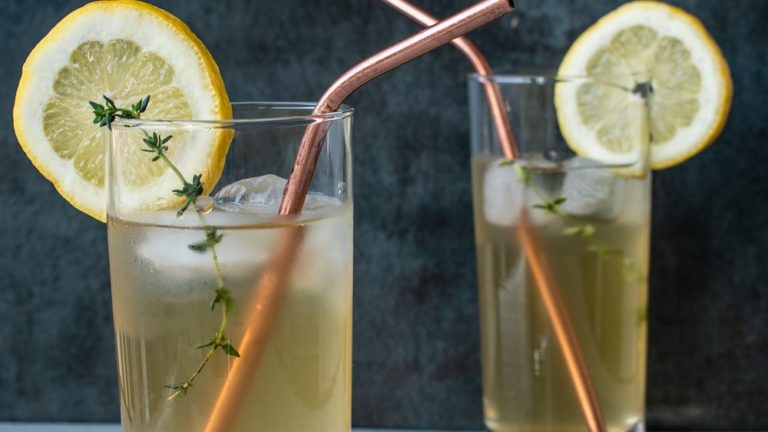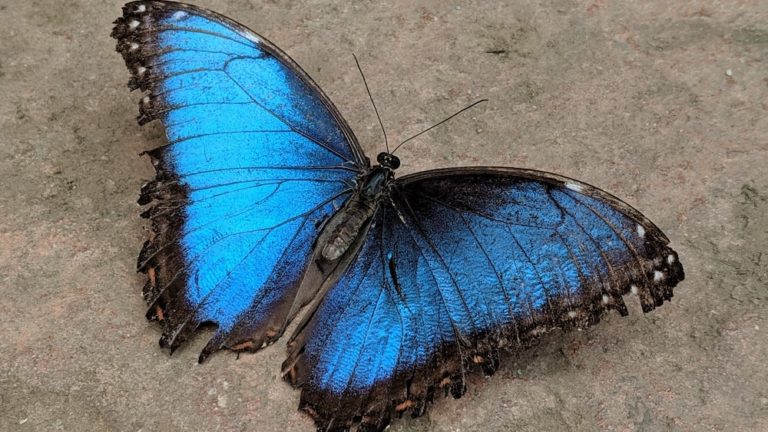Is Oolong Tea Fermented? Unveiling The Truth Behind Oolong Tea Fermentation
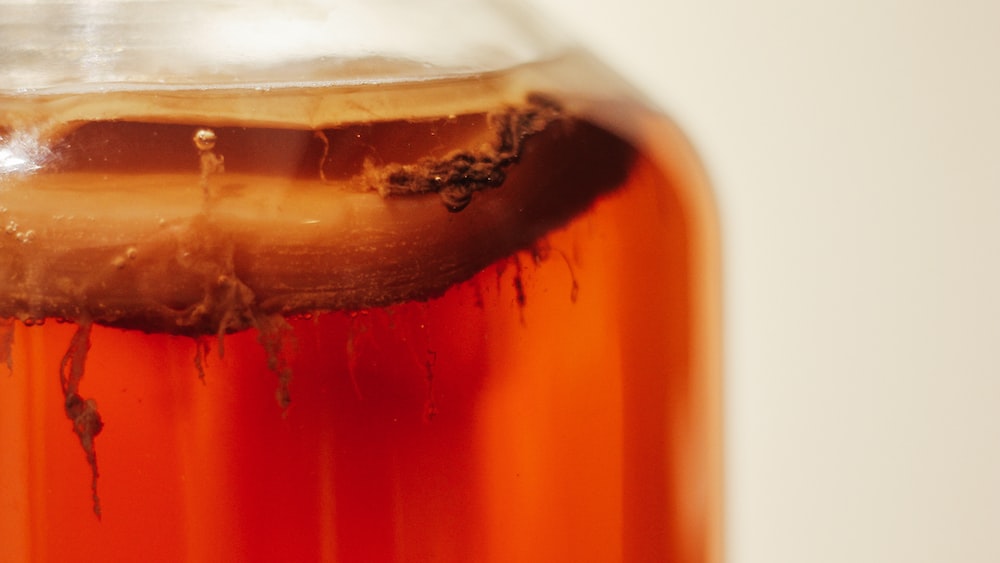
Is Oolong Tea Fermented? Unveiling The Truth Behind Oolong Tea Fermentation
Drumroll, please! We’re about to dive headlong into the aromatic and enchanting world of oolong tea. Now, I know what you might be thinking. “Tea is tea, right?” Well, hold onto your teacups, folks, because we’re about to answer the million-dollar question – is oolong tea fermented?
Just imagine yourself as Sherlock Holmes for a moment, me as your trusty sidekick, Watson, and together we’re going to solve this ‘fermentation’ mystery. Have you always wondered why your cup of oolong has that distinct taste and color? And how different it is compared to your daily morning green tea or that robust English breakfast tea? Well, the cat will be out of the bag soon enough.
You see, the world of tea is a lot like a well-orchestrated symphony, with each type of tea playing its special part. Yet, miso-soup to sushi, fermentation often spices things up in the food world. Does it do the same with oolong tea? Keep reading, my friend, let’s uncover the truth.
What is Oolong Tea?
Hold your breath! Here lies our first irony. See, oolong tea isn’t really ‘oolong.’ Curious much? Wait till we spill the real tea!
Origin and Description of Oolong Tea
If we magnify our tea-trail lens on oolong tea, we’ll find ourselves between the exotic verdant mountains of China and Taiwan, quivering tea leaves in our hands. Yes, this alluring beauty comes from the Camellia sinensis tea plant- loved and cared for most meticulously in the misty, high-altitude terrains of these two countries. That’s right, not a freak accident but nurtured on purpose!
But here’s a ‘tea’ser. How well known do you think the Chinese tea harvesters were with the term ‘oolong tea’ when they’re doting on their tea plants? Well, not at all! You see, oolong is the anglicized version of the Chinese term ‘wūlóng,’ which means ‘black dragon.’ Now that’s a name, isn’t it? Dragon spewing fiery taste into your tea!
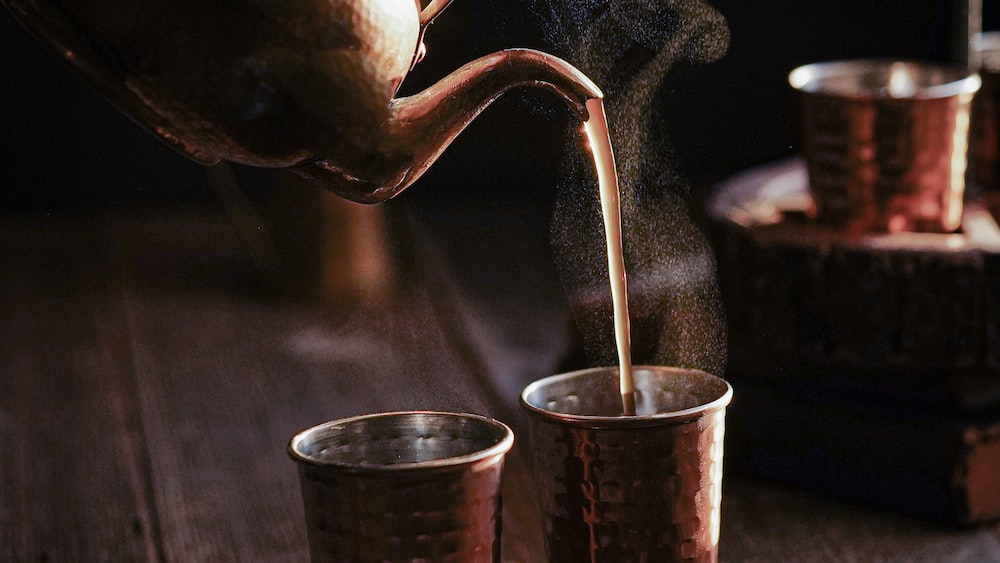
But don’t get scared off just yet, because you’ll absolutely love this dragon. The splendid aromatic spectrum of oolong tea ranges from sweet and floral to thick and woody. How about that for versatility?
Oolong tea, also known as ‘wūlóng’ or ‘black dragon,’ offers a versatile and aromatic taste experience ranging from sweet and floral to thick and woody.
Types of Oolong Tea
Ready for some tea taxonomy? Thanks to the differences in geography, climate, and a little thing called fermentation, there’s a buffet of oolong tea types to choose from.
In one corner, we have the charismatic Chinese oolong teas like Tieguanyin and Da Hong Pao, renowned for their bold and heavily oxidized features. They’re like those dramatic opera singers hitting the high notes. On the other hand, Taiwanese Oolong teas like Baozhong and Dong Ding come dancing in, charming us all with the their lightly oxidized, softer, and floral profile. More like, opera singers in soothing melody!
The Process of Oolong Tea Fermentation
Do you smell that? It’s the whiff of science brewing in our tea leaves. Follow me, let’s stir this oolong tale a bit more and unfold the tale of its fermentation.
Understanding Tea Oxidation
For those who snoozed through chemistry class (No, not you, right?), oxidation is simply a natural process where tea leaves react with oxygen. This happens soon as they’re plucked off their Camellia sinensis mother plant. It’s like an ‘invisible concert,’ with enzymes in the leaves playing the lead, doing a rock n roll with the oxygen available in the air.
Now, is this the same as fermentation? Well, not quite. Oxidation is a spontaneous process. But fermentation, ah, now that’s where the art and the science of tea making really come to play. It’s controlled, it’s measured, and it’s what sets your humble cup of oolong tea apart from its green and black peers.
Fermentation in Oolong Tea
Let’s take our cue from Goldilocks here. Not too little, not too much. Oolong tea hits that ‘just right’ spot, undergoing a semi-fermentation process. It’s like oolong decides to walk the middle path, saying ‘why should I pick a side?’
Plucked leaves are withered under the strong sun and then shaken in trays or baskets. This agitation bruises the leaves’ edges, leading them to oxidize. Then the teas are curled or rolled into their distinctive shapes. Finally, the leaves are fired to cease fermentation – thus sealing in that oh-so-special oolong flavor.
The Role of Fermentation in Oolong Tea
Remember the question we sipped into our narrative at the beginning: is oolong tea fermented? Well, it’s about time to bring the curtain down on this one, don’t you think? Stay tuned, as we steep further into the role of fermentation in oolong tea.
How Fermentation Affects the Flavor and Aroma of Oolong Tea
Ever wondered why Oolong tea gives off that irresistible aroma and such tantalizing flavor that sweeps you off your feet? Well, you have the fermentation process to thank for that. With oolong, think of fermentation as an enthusiastic artist splashing a grayscale painting with vibrant hues, transmogrifying the leaves into a complex bouquet of flavors and fragrances.
The tea leaves, once on the brink of being just a plain Jane, begin quivering their whiskers (so to speak) with newfound flavor profiles and intoxicating aromas. All because of fermentation. Just like Cinderella transforming for the ball, it’s during this process when the raw green leaves lose their innocence and become full-bodied, turning into the diva of beverages.
Depending on how long the leaves are fermented, oolong tea can span a wide range of flavors. From sweet and floral to rich and woody. It’s like playing a never-ending game of hide and seek with the taste buds, never knowing what sensation you’ll experience next. So in retrospect, asking “is oolong tea fermented?” is like inquiring if the sun is hot!
Fermentation in oolong tea transforms the leaves into a complex bouquet of flavors and fragrances, turning them into the diva of beverages with a wide range of flavors.
Fermentation and the Health Benefits of Oolong Tea
Now hang onto your teacups, because this is where it gets even more interesting! Fermentation, the master key unlocking the floodgates of flavor, also plays a crucial role in the health benefits of the tea. It’s like the process has its own halo, casting a golden light of health benefits on the wonderful world of Oolong.
- Are you constantly battling the bulge? Oolong could be your knight in shining armor. Studies show that regular consumption of this partially fermented tea helps improve fat metabolism, encouraging weight loss. Now, who says you can’t sip your way to a healthier you?
- The sweet aroma of oolong is not just captivating, it’s therapeutic. Compounds developed during fermentation have been found to have a calming effect on the nervous system. So if you ever find yourself tangled in the whirlwind of stress, a cup of oolong is just the solace you need.
Lastly, and arguably most importantly, the magical touch of fermentation enhances antioxidant properties in the tea. These antioxidants are like internal soldiers, fighting against harmful free radicals and playing an essential role in disease prevention. Oh, did I mention how these benefits still sparkle even when the tea cools down? Amazing right?
Comparing Oolong Tea with Other Teas
Now, hold your horses! Before you ride off into the sunset with your newfound love for oolong tea, let’s give other teas a chance. How does our beloved oolong stack up against its well-known siblings – green and black tea?

Oolong Tea vs. Green Tea: The Role of Fermentation
Let’s start with green tea. If oolong tea were rock-n-roll, then green tea would be smooth jazz. They both have their unique rhythm, but the vibrant and dynamic fermentation dance of oolong sure sets it apart. Here’s a little secret, green tea undergoes minimal oxidation. You could call it the almost-skipped-the-prom kind of tea.
While the raw, grassy flavor of green tea makes it a hit amongst health enthusiasts, it doesn’t perform the flavor high jump like our champ, oolong, thanks to fermentation. The minimal oxidation gives it a light and delicate taste, but it lacks the wow-factor that you’d experience in a sip of fermented oolong.
However, let’s not dismiss green tea in the health department. Its mild processing helps retain the maximum amount of natural antioxidants, which explains its popularity amongst the health-conscious crowd. Yet, when it comes to a melody of complex flavors and aromas, oolong is playing its own symphony.
Oolong Tea vs. Black Tea: The Degree of Fermentation
Now, let’s step into the arena with black tea. Black tea is like a rebellious teenager going all the way, totally fermented. So, remember when we asked, “is oolong tea fermented?” The answer may be “yes,” but when compared to black tea, oolong’s process is more like a moderate walk in the park than an all-out marathon.
Black tea – known for its robustness – tends to have a bold, intense flavor and a darker color, all thanks to its complete fermentation. However, the subtlety and variety of flavors observed in oolong is often not present in black tea, rescuing oolong from being a mere shadow of black tea. So, while black tea is exciting in its right, there’s a unique languidity and unpredictability about oolong that makes it an absolute spectacle.
Health Benefits and Risks of Oolong Tea
From an enticing flavor profile to an even more intriguing health benefits suitcase, oolong tea presents the best of both worlds. But it’s not presented through rosy glasses only. Let’s explore the potential health benefits of this bewitching beverage.
Potential Health Benefits of Oolong Tea
- Heart Health: It’s not just your taste buds that are jumping in joy with a sip of oolong, your heart is too. Numerous studies have shown that oolong tea consumption can support heart health by reducing cholesterol levels and blood pressure. It’s like a love-letter from the tea to your heart.
- Teeth and Bone Health: Hold onto your teacup tighter because here’s another zinger. Oolong tea might benefit your bone and teeth health. That’s right, it’s not just for sipping anymore! Several studies suggest that consistent intake of oolong tea can support stronger and healthier teeth and potentially prevent osteoporosis.
So, yeah! Oolong tea is indeed fermented. It’s this artistic process of fermentation that transforms the ordinary tea leaf into something extraordinary – a treasure trove of enchanting flavors, alluring aroma, and remarkable health benefits. It’s like uncovering the secret life of the tea leaf that orbits the world of oolong. An extraordinary journey that starts with the simple question, “is oolong tea fermented?”
Oolong tea can support heart health by reducing cholesterol levels and blood pressure.
Possible Risks and Precautions of Consuming Oolong Tea
As captivating as the world of Oolong tea is, with its enticing aromas and compelling history, there still lurk a few potential concerns we need to address. Let’s grab our detective magnifying glasses and peer into the darker abyss of Oolong tea for a moment. Oolong tea, like its tea siblings, contains caffeine, which for those with a low tolerance or sensitivity can lead to headaches, insomnia, or an upset stomach.
While these side effects don’t rally a parade, they form a small percentage and mostly occur when you consume it in excessive amounts. Think of it as your favorite song – wonderful in moderate doses, not so much on repeat for 24 hours straight. Additionally, Oolong tea can potentially interact with specific medications, leading to decreased drug efficacy. You know, that clash of titans kind of scenario.
Ultimately, it’s always wise to consult your healthcare provider to ensure a harmonious blend of your health regime with the delightful Oolong tea. You certainly do not want to be caught in a tumultuous tea tussle!
FAQs
1. Is Oolong Tea fully fermented?
Oolong Tea isn’t fully fermented. This often complex and alluring tea usually undergoes a semi-fermentation process, sitting quite majestically between unfermented green tea and fully fermented black tea in the grand spectrum of fermentation.
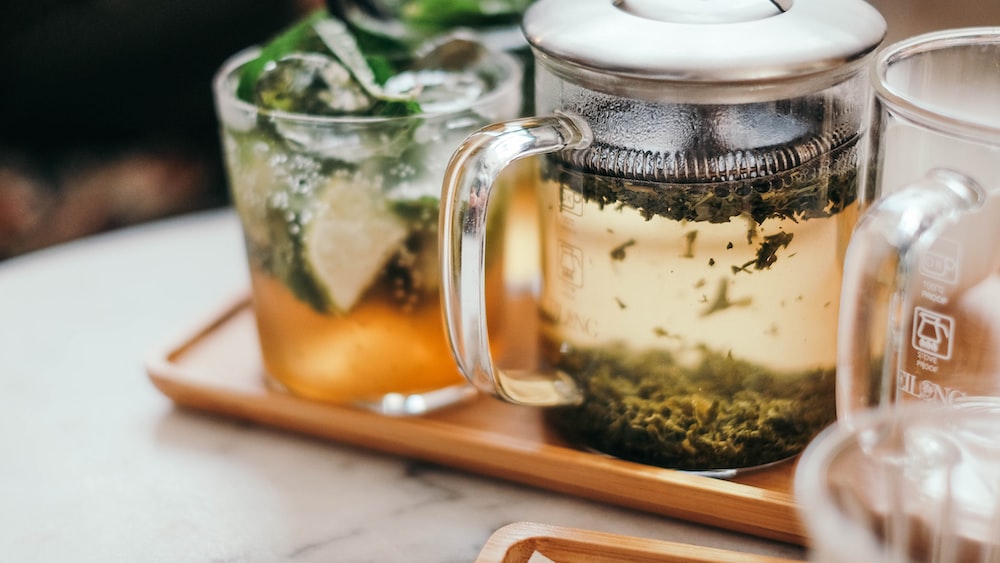
2. How does the fermentation process affect the taste of Oolong Tea?
The fermentation process significantly impacts the taste of Oolong Tea. This process, akin to the conductor of a grand symphony, orchestrates the transformation of a simple leaf into an extraordinary array of flavors and aromas. The extent of fermentation often unveils a captivating taste ride – mild and floral notes with less fermented Oolong to robust, fruity flavors in highly fermented ones.
3. What are the health benefits of fermented Oolong Tea?
The health benefits of fermented Oolong Tea are indeed fascinating. This delicious and enchantingly aromatic beverage may assist in improving heart health, fighting diabetes, and aiding weight loss. Moreover, it’s packed with antioxidants, contributing to better skin health, boosting your immune system, and even serving as a peaceful, aromatic stress-buster.
4. Are there any risks associated with drinking fermented Oolong Tea?
There can be certain risks associated with drinking fermented Oolong Tea, particularly for those with caffeine sensitivity. These risks can include headaches, insomnia, and digestive troubles, usually if consumed extravagantly. It’s crucial to balance the love for Oolong with a sense of moderation and always seek your healthcare provider’s advice if you’re on medication.
Conclusion
In our trip around the tea world, we’ve answered the question, “Is Oolong Tea Fermented”. We’ve explored the mystical tea gardens, the brewing and sipping rituals, and even the dark corners of potential risks. Yet, what remains constant is the allure of this semi-fermented marvel.
It feels a bit like reading a captivating mystery novel – every sip of Oolong revealing a new layer, a new note, a fresh perspective in its journey from leaf to cup. Perhaps though, that’s what real tea enthusiasm is about – embracing the beauty, complexity, and occasional uncertainty of this extraordinary brew.
As we conclude our Oolong expedition, I hope this has enriched your tea lover’s heart, infused new knowledge, and maybe even diminished a worry or two. Remember to enjoy your Oolong dance with moderation, and if unsure, have a tete-a-tea with your healthcare provider. Until our next tea exploration – Stay steeping, my friends!
Warmest tea regards,
Zoe


